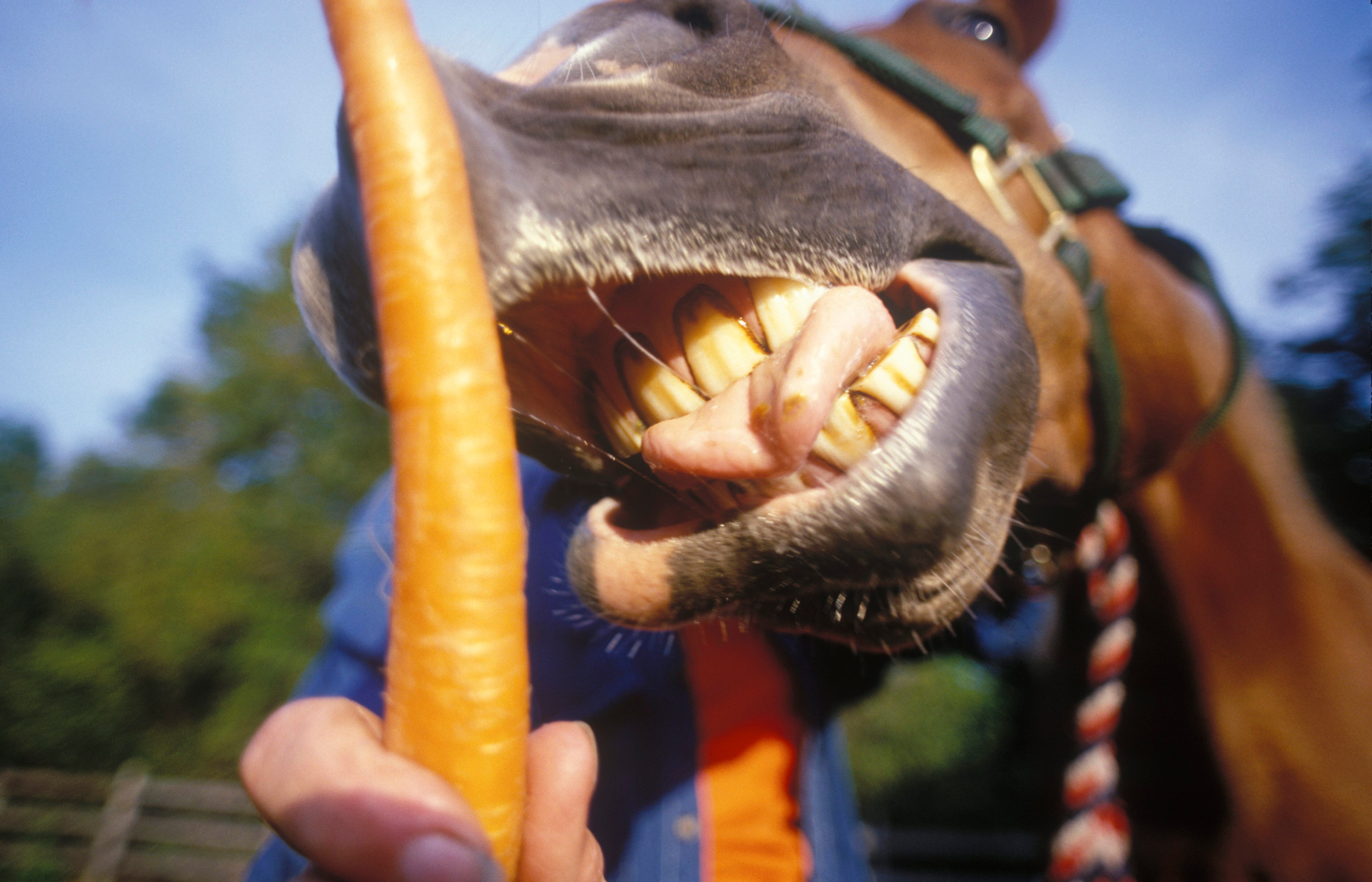
It is a common practice for horse owners to offer treats as a reward for good behavior. However, a few noteworthy points must be considered, including calories and temperament/behavior changes.
Potential problems with offering treats, especially if hand fed, are:1) The nutritional value in giving treats in quantity might contribute to obesity; and 2) Spoiling the horse with hand feeding often creates a pushy, disrespectful individual.
No matter what a horse is fed, moderation is the best advice.
Horses evolved to eat dried grasses and forbs (plants other than grasses), not grains or peppermints; not apples, carrots, cookies, horse candies, sugar, trail mix,or Powerbars. The best recipe for a horse’s digestive health is based on a high-fiber diet in the form of hay, pasture, hay cubes or some form of balanced pelleted feed.
Horse treats are often high in carbohydrates and sugars, neither of which is a healthy horse food ingredient, especially if fed to an already overweight horse.
Besides these constituents not being included in the main equine food groups that promote nutritional health, once you start feeding treats, you might let the genie out of the bottle.
A horse grabbing for treats can inadvertently bite beyond the treat, producing serious physical consequences–nipping a child’s hand or a person’s leg beneath their pants (where cookies are often carried in pant or coat pockets). There are numerous incidents of people getting kicked or run over while trying to catch a horse in a herd where the horses are jostling and competing for treats.
The best recommendation for those who insist on feeding treats is to place the cookie or candy into a bucket rather than offering it from your hand. Refrain from carrying treats on your person whenever possible. Use treats that are high-fiber based, such as something made from compressed hay or alfalfa. And, limit the amount of treats you give, perhaps giving just a portion of an apple,r one carrot or one or two horse cookies.
With these practical strategies, treats can be provided as reward without overdoing it to the point where it could become a problem.


